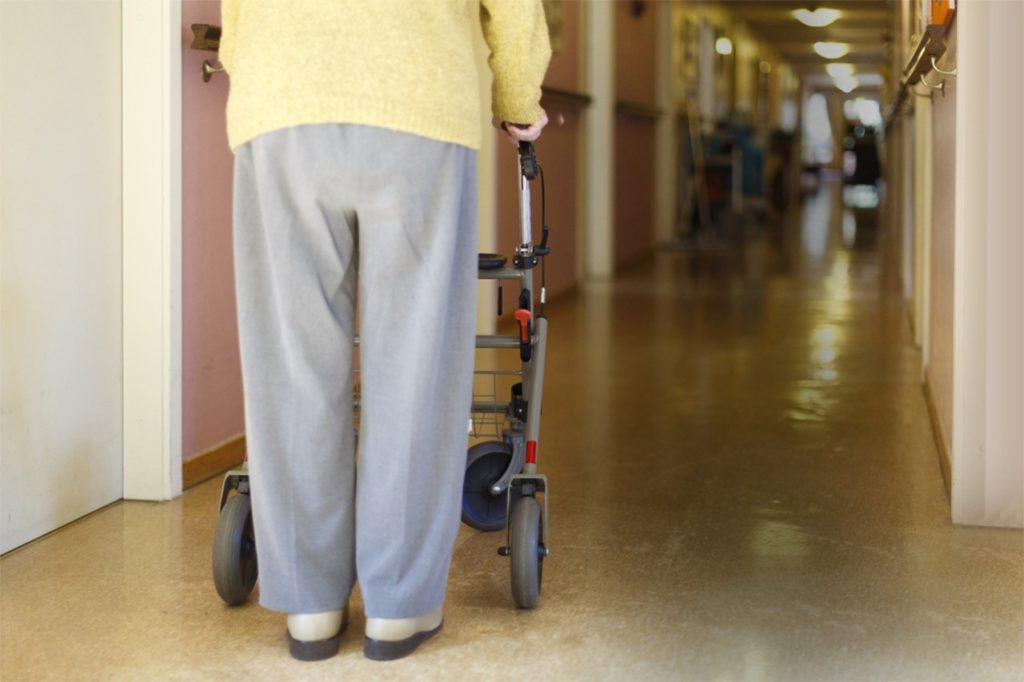"Serious failings" have been uncovered in more than 60 Belgian facilities caring for French nationals with disabilities, including physical and verbal abuse, deprivation of food as punishment, and lack of care sometimes leading to death.
A report published by the French Court of Auditors outlines the findings of an investigation into the lives of French adults with disabilities who are living in care facilities in Belgium. The investigation was carried out jointly with the Belgian Court of Audit.
French disability supports do not restrict accommodation funding to facilities in France. It is estimated that close to 8,200 French nationals (7,000 adults and 1,200 children) live in facilities across the Belgian border in Wallonia – representing a cost to the French public purse of €500 million a year.
Meanwhile, the Walloon Agency for Quality of Life (AViQ) designated a budget of €650 million in 2023 to subsidise the services it approves.

The AViQ (Agence pour une Vie de Qualité) office in Charleroi, 4 May 2020. Credit: Belga / Virginie Lefour
A framework agreed between the governments of the French Republic and the Walloon Region in December 2011 outlines how the two authorities co-operate regarding care facilities.
French nationals are mainly accommodated in so-called Safaé services (approved services funded by a foreign authority). Around 19% are accommodated in other approved services, some of which receive funding from the Walloon Government.
The availability of French funding has attracted new entrepreneurs to establish facilities in Belgium, the French Court of Auditors explained, who were "sometimes far removed from the medico-social field."
The French Court also highlighted that French adults being cared for in Wallonia are often those with more complex needs, who have the least access to French facilities and services. The Court noted a "large number" of people with behavioural and conduct disorders, combined with a mental disability or intellectual impairment, living in Belgium.
'Serious failings' uncovered
The report found "serious failings" in more than 60 Belgian establishments that are accommodating French nationals, based on 150 inspection reports since 2015.
Failings include "physical or verbal abuse, deprivation of food as punishment, lack of care sometimes leading to death, spoiled foodstuffs, rationing of meals, poorly maintained or dilapidated buildings, lack of supervision putting residents at risk, negligence in the distribution of medicines, failure to respect privacy and intimacy, undue billing using residents' Vitale cards, and financial fraud."
According to the competent authorities, the checks carried out show that these failings affect around 20 facilities catering for disabled French people each year.
The French Court called for a review of the ways in which French and Belgian authorities should work together on the issue, given the "repetition and seriousness" of the failings.
Difficult to determine extent of failures
Meanwhile, in its own statement regarding the investigation, the Belgian Court of Audit said that cases of mistreatment have been reported in "several establishments." However, it is difficult to define the seriousness of the shortcomings.
"In practice, situations considered problematic are presented to the hierarchy every two months for follow-up and decision. The time between the inspection visits, the drafting of the report and its validation is irregular, ranging from a few days to several months," the Belgian Court said.
"In addition, the administration does not have a synoptic view of the results of the various audits, which would make it possible to identify, in a cross-functional manner, the themes and seriousness of the malfunctions observed within the departments."
Related News
- Belgium lags behind on disability inclusion, according to reports to UN
- Majority of Belgian websites inaccessible to people with disabilities
- Belgium makes healthcare 'more accessible and affordable'
The Belgian Court added that action plans arising from audits have "no formal standards or monitoring tools to support them," and deficiencies considered minor can "sometimes persist for several years, without being effectively remedied."
Persistent minor breaches are also generally not punished. When sanctions are imposed, it can take over two years after a finding for them to be applied.
The Belgian Court of Audit said that the report into care of French nationals in Wallonia has been sent to the Walloon Parliament.

